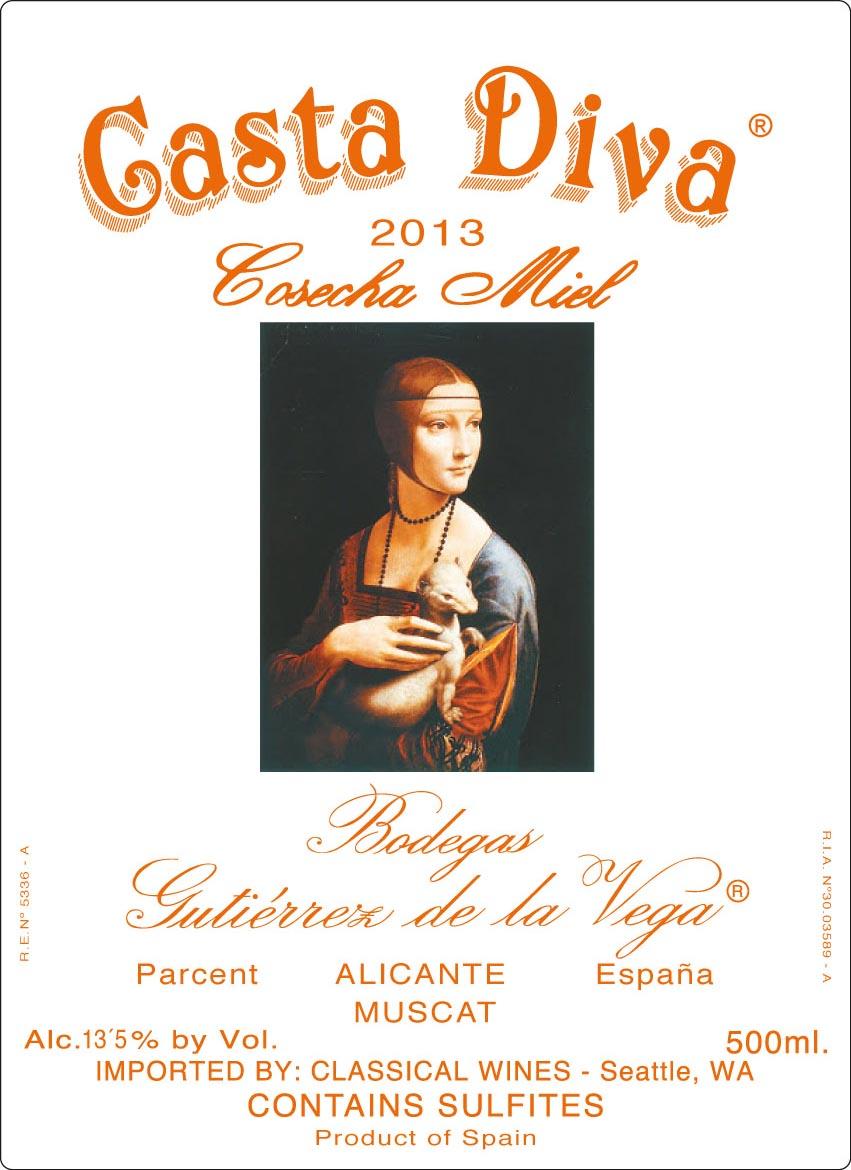2013 Alicante Muscat
Casta Diva Cosecha Miel is a delightful white wine crafted from the Muscat grape in the picturesque Alicante region. This vintage from 2013 showcases a beautiful golden hue that glimmers in the glass, drawing you in with its allure. The wine is full-bodied, delivering a luscious mouthfeel that is both smooth and sophisticated. It exhibits a high level of acidity, providing a bright and refreshing character that perfectly balances its sweetness, making it incredibly food-friendly. The fruit intensity is prominent, with notes of ripe peach, apricot, and honey, creating a delightful aromatic experience. The tannins are delicate, allowing the wine's natural sweetness to shine without overwhelming the palate. Casta Diva Cosecha Miel is off-dry, making it an exquisite choice for those who appreciate the enchanting combination of richness and freshness in a sweet white wine.
Casta Diva Cosecha Miel is a delightful white wine crafted from the Muscat grape in the picturesque Alicante region. This vintage from 2013 showcases a beautiful golden hue that glimmers in the glass, drawing you in with its allure. The wine is full-bodied, delivering a luscious mouthfeel that is both smooth and sophisticated. It exhibits a high level of acidity, providing a bright and refreshing character that perfectly balances its sweetness, making it incredibly food-friendly. The fruit intensity is prominent, with notes of ripe peach, apricot, and honey, creating a delightful aromatic experience. The tannins are delicate, allowing the wine's natural sweetness to shine without overwhelming the palate. Casta Diva Cosecha Miel is off-dry, making it an exquisite choice for those who appreciate the enchanting combination of richness and freshness in a sweet white wine.




